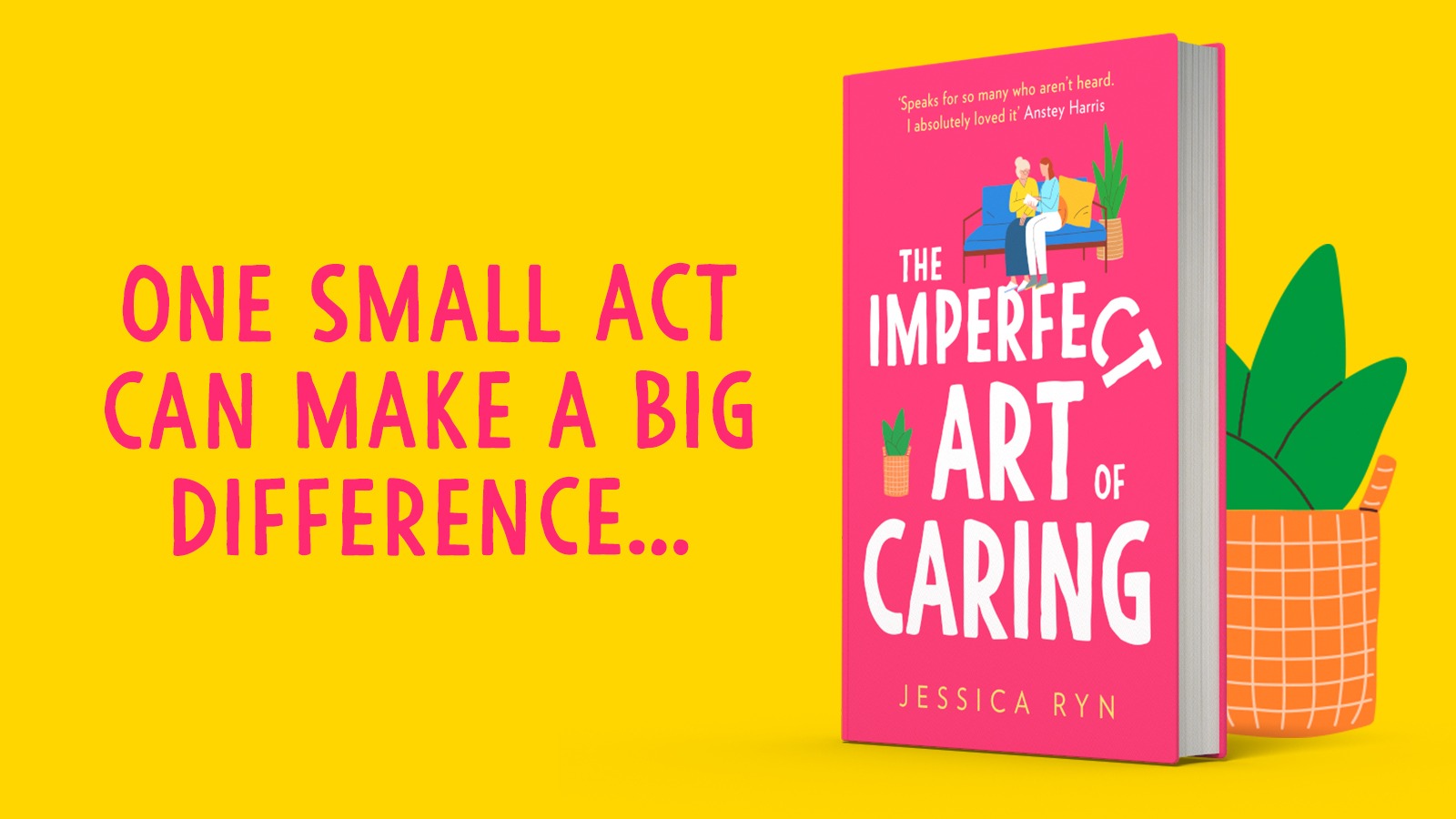As an author and a carer, I wanted to write a novel that puts unpaid carers in the spotlight. It was important to me to show the challenges that carers are presented with and do so in a hopeful way without shying away from the difficult emotions and problems carers face. The Imperfect Art of Caring highlights the isolation that so many carers experience which been exacerbated over this past year.
Feeling alone is one of the toughest aspects of caring, especially if you’re caring for a family member who lives with you full time. One of the things I found easier during lockdown was that I didn’t have to keep turning down invitations from friends. I’m always grateful to be asked and I’m fortunate enough to have many supportive friends, but I do always worry people might think I’m making excuses not to see them, and it isn’t always possible for me to go out far on a regular basis, particularly when my husband is having a flare up with his health conditions.
It can also be difficult when caring for someone when their symptoms are variable. The level of care needed on one day can be vastly different one day than the next. If someone were to see my husband on an especially good day, they might not understand why I need to care full time for him. Which brings me nicely on to my next challenge: stigma.
The stigma carers face is a huge part of what makes unpaid caring difficult. Many carers are unable to work and sometimes (not always) the person they are caring for are also unable to work. If living in the same household, the financial pressures can be immense, resulting in the need to navigate the benefits system. The benefits system is there to support those who need it, but it’s still painful to feel judged by comments people often make on public forums about ‘scroungers;’ attitudes that are further perpetuated by certain TV documentaries and talk shows.
In my novel, I touch on the stress involved with attending disability benefit assessments because this is often one of the most difficult parts of the year for people who are being cared for and for their carers. What society needs to realise with regards to carer visibility, is that without unpaid carers, the strain on our healthcare budgets would be far and above what is now. There have been an enormous number of times where my husband would have had to be cared for in hospital for longer periods if he didn’t have a carer at home, or he would have needed support workers to visit regularly.
Being an advocate for someone can be a key part of caring, which also carries its own challenges. Making sure someone’s voice is heard at health appointments has always been difficult but during the pandemic, it’s been extremely hard. My husband was admitted to hospital twice during those months and being unable to go in the ambulance with him, visit him or speak to medical staff involved in his care was one of the most difficult things I’ve faced as a carer, despite understanding it was essential that it happened that way at that time due to Covid risks.
Caring for a family member brings its own challenges too, as it places pressures on your personal relationship. In The Imperfect Art of Caring, my characters are carers in different types of households because I wanted to show the effect caring can have on family dynamics. I included a carer with a young child, because being a carer with children adds another dimension, which people sometimes need support with.
My son attends a young carer’s group which he finds beneficial as it’s a safe space to socialise and share his worries with other young people who are experiencing similar things. I’ve also attended a carer’s support group that helped me feel less alone during a particularly low point, which inspired me to bring my characters together in my novel to form the Helping Hands Care Club. These support systems are invaluable, which is why carer visibility and awareness is so important in order to raise funding and support.
Writing a novel about the lives of carers has been rewarding and cathartic for me. I turned to writing as an outlet when I gave up my career as a midwife to be a full-time unpaid carer. I was suffering the loss of my professional identity, which is another thing touched upon in my novel. So many carers are prevented from working in the areas they want to due to access issues and carers are far less visible in many creative industries due to the lack of financial stability. Having one uncertain household income can be problematic, especially for those with dependent children. Carers UK are campaigning for greater accessibility for carers in the workplace and for them to be given adjustments that make it easier for them to remain in their jobs if they’re able to.
It’s my hope that The Imperfect Art of Caring will help raise awareness about the challenges carers face and contribute to the visibility of carers everywhere. Carers need to be seen and they need to be heard for change to happen.
The Imperfect Art of Caring is out now in hardback, eBook and audio. Available here.
The pandemic has been difficult for everyone and for carers, it’s brought a host of new challenges and enhanced existing ones. One of the positive aspects of this, however, is that these magnified challenges are helping to highlight the issues that carers face every day. Carers UK are a fantastic organisation at the forefront of campaigning for support and visibility for carers in all areas and provide wonderful resources and advice. Please do go to www.carersuk.org/ for further information if you’re a carer in need of support.



